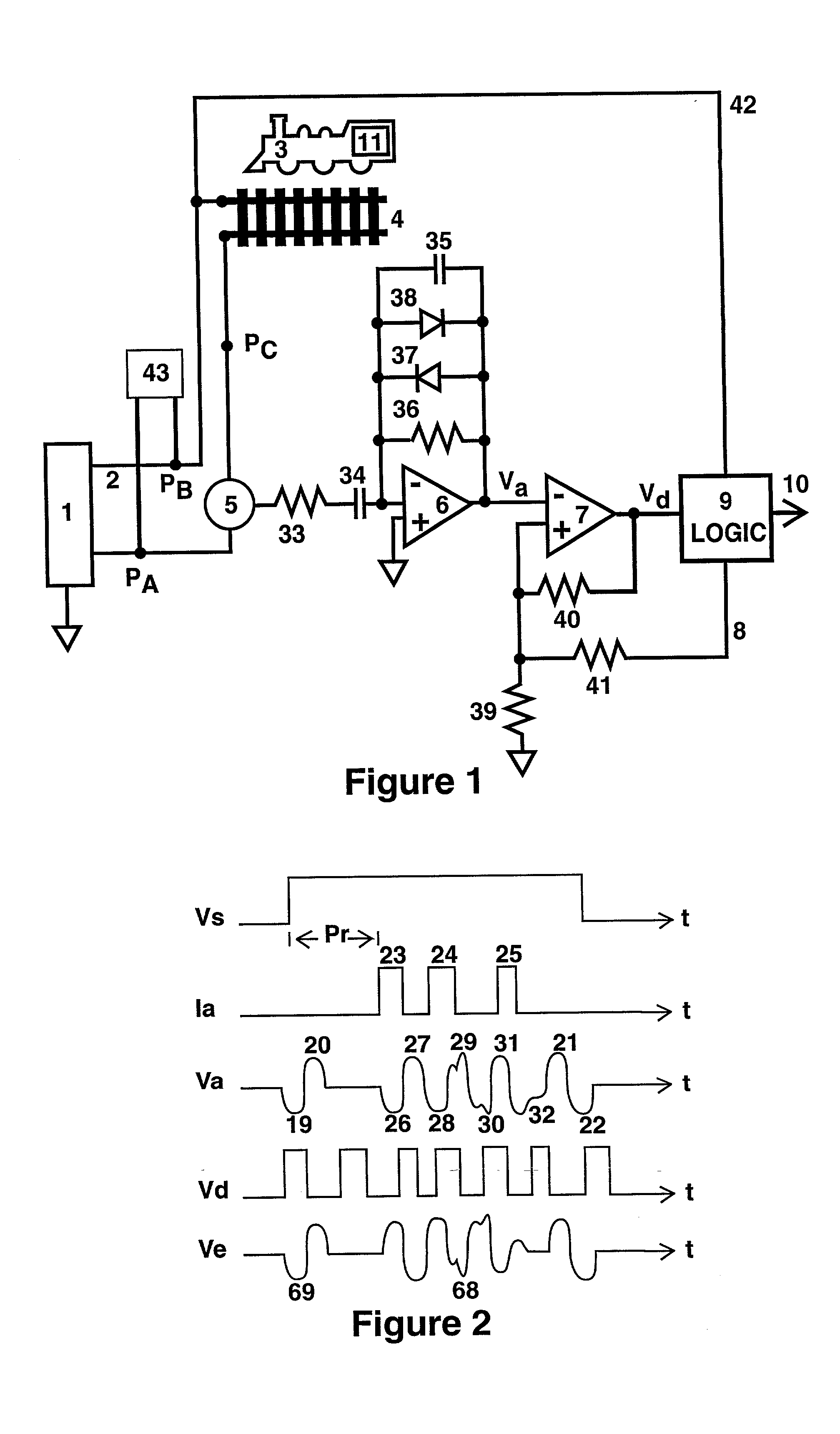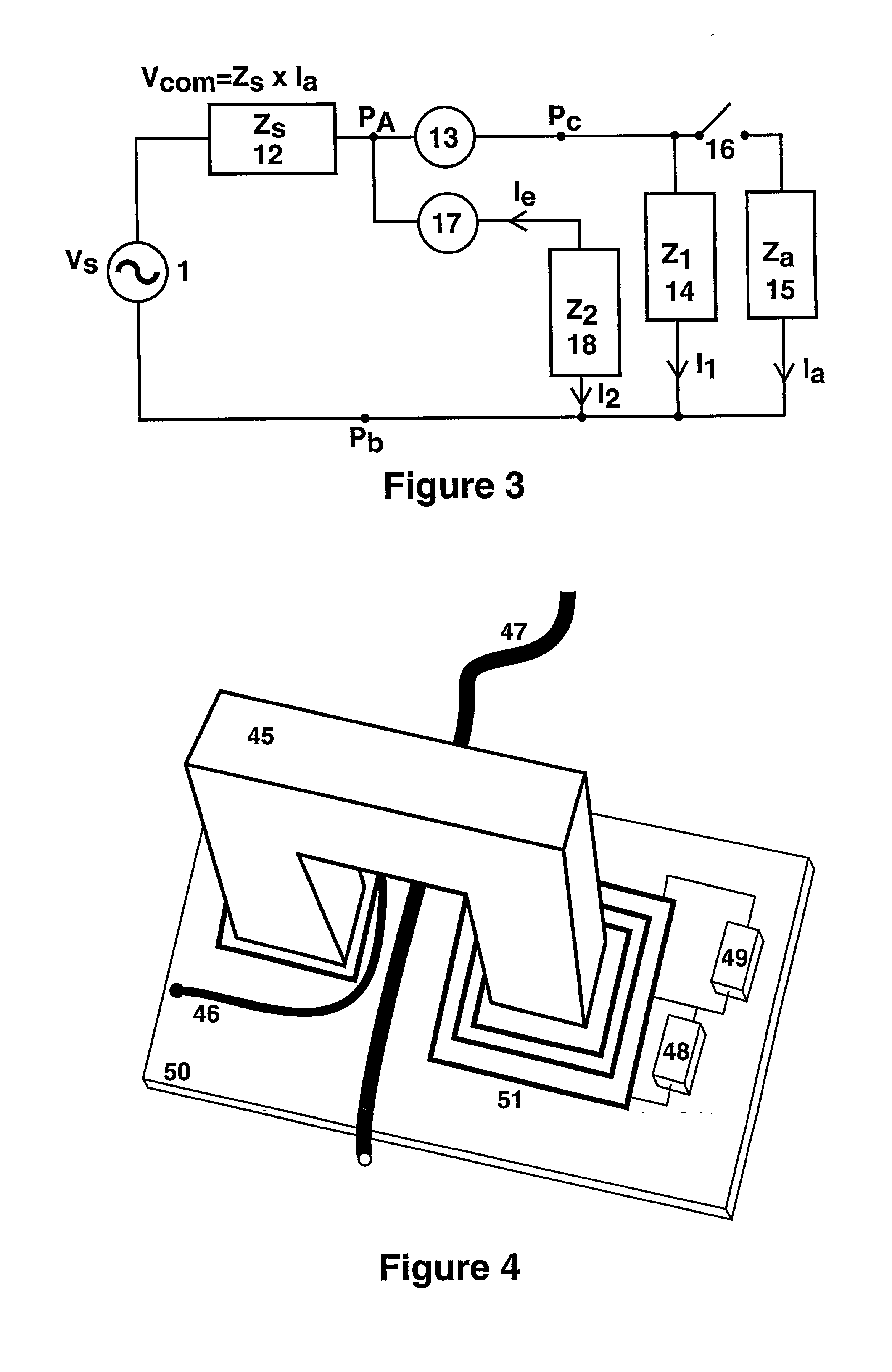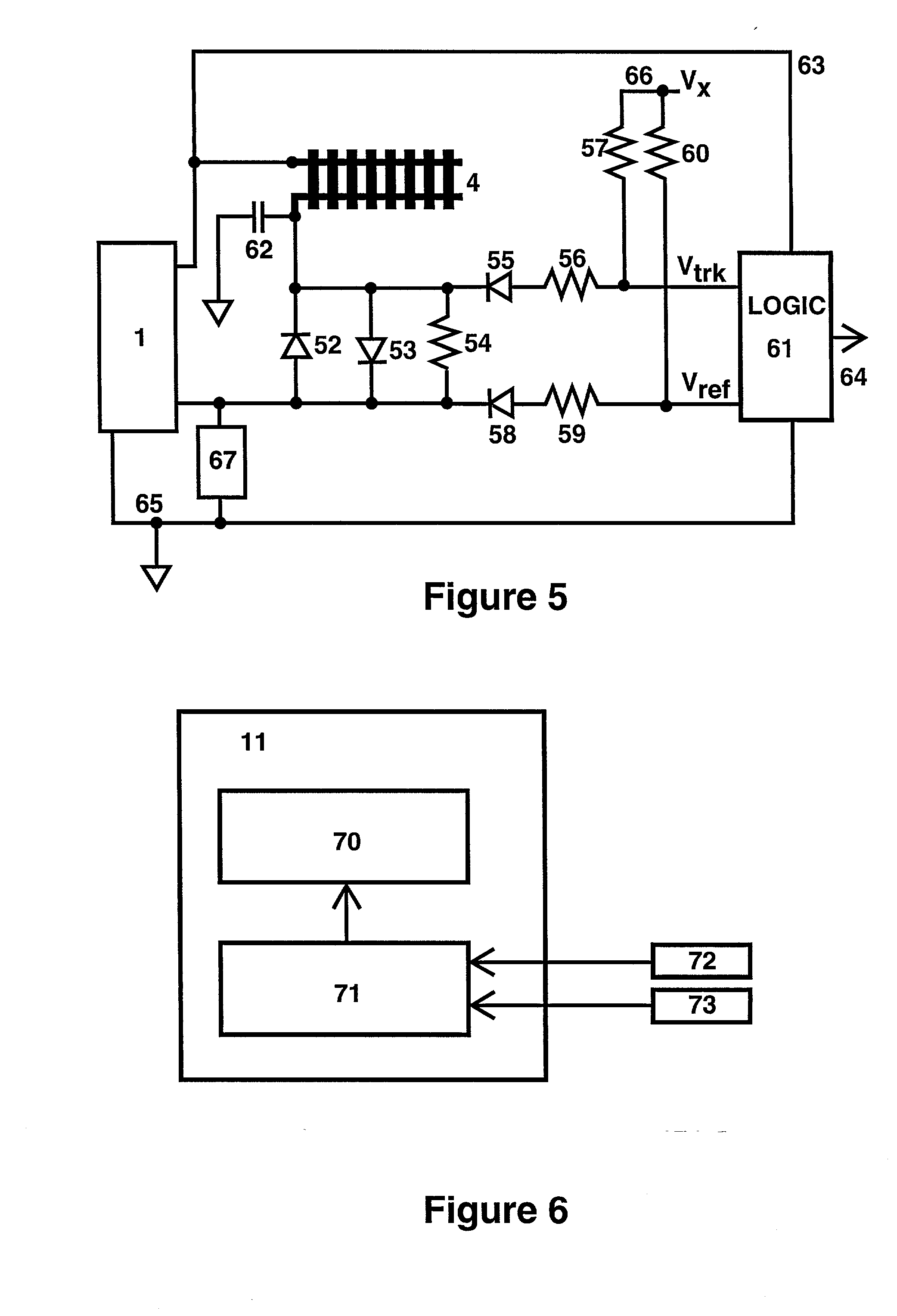Model railroad occupancy detection equipment
a technology for occupancy detection and equipment, applied in the direction of model railways, railway signalling and safety, toys, etc., can solve the problems of imposing tough detection challenges, placing sensitivity and other burdens on the transponder detection device, and performing transponder operations at lower current levels, so as to achieve more layout control possibilities and improve the design of occupancy detectors
- Summary
- Abstract
- Description
- Claims
- Application Information
AI Technical Summary
Benefits of technology
Problems solved by technology
Method used
Image
Examples
Embodiment Construction
[0025] The track power booster element 1 in FIG. 1, is connected to the layout tracks, 4, that are to be controlled and detected via the feeder wiring, 2. One of the feeder wires conducting power and control signals to the tracks, 4, is connected to a detection current sensor device, 5. The item we wish to detect, typically a locomotive or piece of rolling stock, 3, containing a current load and possibly a transponder device, 11, is in electrical contact with the track, 4.
[0026] Transponder acknowledgement current pulses, designated in this description as Ia, are encoded and generated by transponder current generating device, 70 in FIG. 6, at appropriate time periods determined by transponder timing generator, 71 in FIG. 6, in response to system commands that are addressed to, or interrogate, the transponder. This corresponds to existing transponder techniques. The exact command encoding format used by the control system to drive the track power booster and hence the rails may corre...
PUM
 Login to View More
Login to View More Abstract
Description
Claims
Application Information
 Login to View More
Login to View More - R&D
- Intellectual Property
- Life Sciences
- Materials
- Tech Scout
- Unparalleled Data Quality
- Higher Quality Content
- 60% Fewer Hallucinations
Browse by: Latest US Patents, China's latest patents, Technical Efficacy Thesaurus, Application Domain, Technology Topic, Popular Technical Reports.
© 2025 PatSnap. All rights reserved.Legal|Privacy policy|Modern Slavery Act Transparency Statement|Sitemap|About US| Contact US: help@patsnap.com



